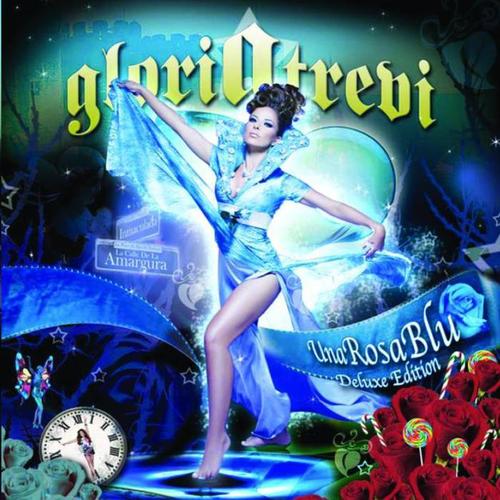
Una Rosa Blu
Gloria Trevi, a Mexican pop/rock star too often defined by her personal travails rather than her musical talents, goes a long way toward reinventing herself stylistically with Una Rosa Blu and putting the tabloid fodder of her past behind her. In some ways the album is a continuation of her comeback album, Cómo Nace el Universo (2004), as well as its follow-up, La Trayectoria (2006), an in-concert career overview that included a handful of new studio recordings, most notably "Todos Me Miran," her biggest hit single in over a decade. Like Cómo Nace el Universo and La Trayectoria, Una Rosa Blu finds Trevi collaborating once again with producer Armando ávila, who lends her more of the hitmaking expertise he brought to La Quinta Estación and RBD in recent years. Several songs on the album, beginning with the album-opening lead single, "Psicofonia," indeed sound stylistically reminiscent of La Quinta Estación. The second and third songs on the album, "Pruebamelo" and "Lo Que una Chica por Amor Es Capaz," carry on in a similar style. This opening run of songs is very good, but Una Rosa Blu begins to take curious turns away from contemporary Latin pop/rock thereafter. Sequenced fourth, the title track, a reinterpretation of Italian vocalist Michele Zarrillo's "Una Rosa Blu," is a dramatic ballad produced by Bob Benozzo (his only contribution to the album) that opens rather surprisingly with saxophone, plus acoustic guitar and piano -- very much in contrast to the punchy pop/rock of the previous three songs. Subsequent songs on Una Rosa Blu take curious turns of their own: for instance, "Immaculada" is a power ballad driven by hard rock guitar riffs, "Do?a Pudor" is a slamming dance track powered by pulsing beats as well as more hard rock guitar, and "La Vida Se Va" is a Sergio George production typical of his New York salsa-pop style. The other of the two George productions, the likewise atypical "Lo Que Te Toca," a standout album-closing collaboration with merengue superstar Olga Ta?ón, is considerably more notable. Another highlight sequenced toward the close of the album is "Cinco Minutos"; penned by Erika Ender, it's the album's most infectious song and leads perfectly into the lively Ta?ón team-up. A series of dance remixes is then tacked on as bonus material (the quantity of bonus material varying from one edition of the album to another), and while these remixes are more or less superfluous, they're tastefully done, the "Psicofonia" remix in particular, and further add to the sense that La Atrevida is reinventing herself stylistically on Una Rosa Blu, an album that should refocus the spotlight on Trevi the artist rather than Trevi the tabloid mainstay. [A CD/DVD edition was also released.] ~ Jason Birchmeier, Rovi All Music Guide
